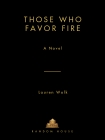Those Who Favor Fire, Lauren Wolk [ereader with dictionary .txt] 📗

- Author: Lauren Wolk
Book online «Those Who Favor Fire, Lauren Wolk [ereader with dictionary .txt] 📗». Author Lauren Wolk
Joe reached across the table and picked up one of her hands. “I already know that, Rachel,” he said. “I don’t think there’s much you could do to surprise me. Not anymore.” He held her hand tightly, looked into her face. “Will you come?”
She thought it over for a minute or two. “All right,” she finally said, nodding. “Let’s see if you have any surprises left for me.”
It was seven-thirty in the morning. In the window of Angela’s Kitchen was a sign that read, GONE FISHIN’. BACK BY SUPPERTIME. Since it was Saturday, the elementary school, where more and more desks sat stiff and empty, would not miss Rusty. Frank no longer had his gas station—just a pile of rubble—so he’d said, “Hell, why not?” when Joe asked him to spend the morning out of town.
Earl and Mag, who had emptied out the hardware store, put their furniture in storage, and were staying at the Randall Motor Inn, waiting for their check, drove into Belle Haven, unsmiling, to find out what Joe wanted with them. Betsy Sapinsley already had her check and was simply waiting out one final week until her son could find the time to drive over from Cleveland and take her home to his tiny apartment. She, who had not left Belle Haven for years, wondered what Joe could possibly have to show her, but he had been tending her garden for two years now, toting her groceries, shoveling her walks, and listening to her when she remembered being a girl. She would go with him for a few hours, gladly. All of them had gathered at dawn in the parking lot behind the school.
The grass on the baseball diamond was brilliant with dew, the cool, October sky nearly purple, the clouds immaculate, the breeze strong. It was nearly impossible to believe on such a morning that everything had gone so wrong, that the land beneath this particular piece of sky was dying.
“I’m sorry I got you all up so early,” Joe said when everyone had arrived, “but I didn’t really want anyone else to know about this. I couldn’t invite everyone to come along, and I didn’t want to make a big deal out of it. There’s enough bickering going on in this town already.” He gave a short, sharp dog whistle, and Rusty, hanging from the jungle gym, turned toward him, ears cocked. “Time to go,” he yelled, and Rusty came running.
At Joe’s request and with Joe’s money, Earl had rented a van in Randall big enough to carry all nine of them. They climbed in and settled themselves, saying little, twitchy with curiosity. Even so, no one had tried very hard to find out where they were going, and Joe was amazed by this. He wondered what they were thinking, whether they had guessed his intentions, if not their destination. He thought that Rachel might have some idea, for she had chosen to sit at the back of the van with Angela and refused to meet his eye.
He saw that Mrs. Sapinsley was quietly smiling. Perhaps she was simply glad to be going somewhere, knowing that she could still return. She had told him often how much she loved to live alone, far from the nearest city, and how much she feared what her life would be like once she was stranded in Cleveland, a burden to her son and a stranger to everyone else.
As Joe drove out of town, Rusty, in the seat beside him, pressed his face against the window, staring out at the passing houses or at the foundations of those that were gone, as if he were looking at unfamiliar country. He guessed the names of the small rivers they crossed on their way north, away from Belle Haven, and exclaimed over the faces of deer among the trees. And then he grew silent, and Joe wondered if he had already begun to miss Belle Haven, so recently put behind them.
After a while, Rusty turned suddenly and asked, “Where we going, Joe?”
“Almost there. You’ll see soon enough.”
Rusty touched Joe on the arm so that he turned to look at him. “I want to go home,” he said.
Joe saw in Rusty’s face an unbearable blend of relentless hope and unfocused fear. Looking back to the road ahead, he remembered how it had looked through the Schooner’s big, dusty windshield.
“When I was a boy,” Joe said, “but much younger than you are now, my mother died. One day she was there with me—I can still remember how it felt to sit with my head against her chest—and the next day she was gone. There wasn’t a single part of a single room in our house that didn’t remind me of her. She had cut some flowers and put them in a vase in my sister’s room the day before she died, and when the flowers wilted someone threw them away and I thought I would go out of my mind.





Comments (0)